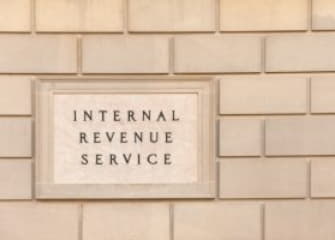
The IRS has provided guidance on the is moving to limit the tax benefits for excessive executive compensation in proposed rules recently issued on December 16. Initially, the 2017 TCJA limited the deduction for employee remuneration in excess of $1 million for publicly held corporations. The IRS is now proposing to clarify the parameters of that limitation.
The proposed regulations clarify the definition of a publicly held corporation to be any corporation that issues securities required to be registered under section 12 of the Exchange Act or that is required to file reports under section 15(d) of the Exchange Act. The proposed regulations expand the definition of a publicly held corporation to bring certain S corporations that fit a similar category within the limitation as well. The regulations propose that an S corporation is also publicly held if it (1) issues securities required to be registered under section 12(b) of the Exchange Act or (2) is required to file reports under section 15(d) of the Exchange Act.
The proposed regulations further provide that the amount of compensation used to identify the three most highly compensated executive officers is determined “pursuant to the executive compensation disclosure rules under the Exchange Act using the taxable year as the fiscal year for purposes of making the determination.”
Finally, when a privately held corporation becomes a publicly held corporation, Section 162(m) would apply to the deduction for any otherwise deductible compensation for the taxable year ending on or after the date that the corporation becomes publicly held.
The IRS has requested comments before February 18, 2020, and has scheduled a public hearing for March 9, 2020. [REG-122180-18, RIN 1545-BO95, 84 Fed. Reg. __ (Dec. 20, 2019)]
ABOUT JARED JOHNSON

Jared.Johnson@offitkurman.com |267.338.1323
Jared Johnson provides tax representation and guidance in complex tax laws and disputes, corporate transactions, reporting, asset protection, and cross-border issues. He regularly assists in compliance with regulations such as the Employee Retirement Income Security Act of 1974 (ERISA) and Section 409A of the Internal Revenue Code.
ABOUT OFFIT KURMAN
Offit Kurman is one of the fastest-growing full-service law firms in the United States. With 14 offices in seven states, and the District of Columbia, and growing by 50% in two years through expansions in New York City and Charlotte, North Carolina, Offit Kurman is well-positioned to meet the legal needs of dynamic businesses and the individuals who own and operate them. For over 30 years, we’ve represented privately held companies and families of wealth throughout their business life cycles.
Whatever and wherever your industry, Offit Kurman is the better way to protect your business, preserve your family’s wealth, and resolve your most challenging legal conflicts. At Offit Kurman, we distinguish ourselves by the quality and breadth of our legal services—as well as our unique operational structure, which encourages a culture of collaboration and entrepreneurialism. The same approach that makes our firm attractive to legal practitioners also gives clients access to experienced counsel in every area of the law.
Find out why Offit Kurman is The Better Way to protect your business, your assets and your family by connecting via our Blog, Facebook, Twitter, Instagram, YouTube, and LinkedIn pages. You can also sign up to receive LawMatters, Offit Kurman’s monthly newsletter covering a diverse selection of legal and corporate thought leadership content.









